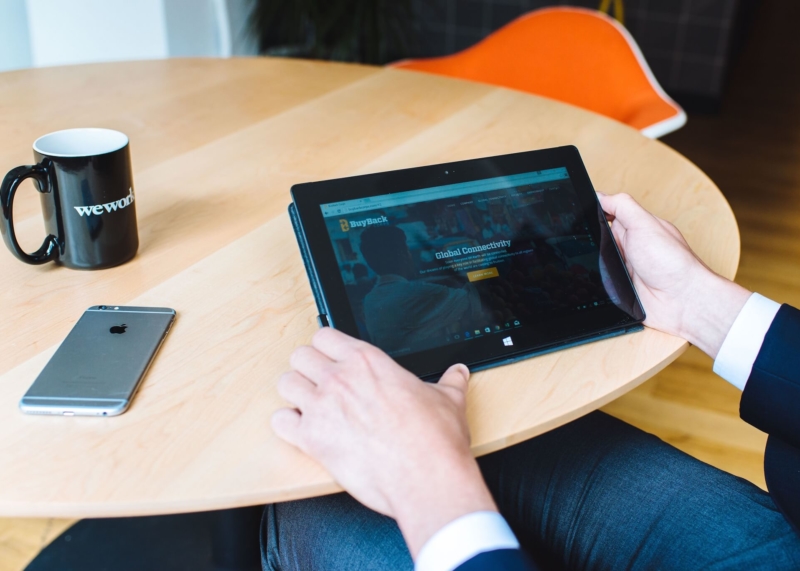It was a make-or-break moment for Daniel Steinberg.
He was having his first face-to-face meeting with a potential co-founder at his startup called BuyBack Corps. And he was also pitching the company to potential investors.
What made it such a challenge? These two events were happening at the same time.
“I have no idea whether my investors at the time even knew I was using the same hour to vet my co-founder and raise money for the company,” says Steinberg. “But when it was over, we were partners and we got our first round of funding.”

That’s the way Steinberg says he likes to work—thinking on his feet, turning disadvantages into strengths. It’s a big reason why BuyBack Corps was successful from the start. In its first year, Steinberg says, it did more than $1 million in business.
Ever wonder what happens to that old cell phone or tablet that you used to use at work? That’s where BuyBack Corps comes in. It purchases used devices from companies that have to upgrade them every couple of years. The savings can be substantial.
“For one large company, that can mean putting half a million or a million dollars back on the table,” says Steinberg.
BuyBack Corps then makes money by reselling the devices. From a facility in California, the company tests, grades, and ships the devices all over the world.
This business model has changed a bit from Steinberg’s original conception.
“When I first started out, I was just a very hardworking Jewish kid from Long Island,” says Steinberg. “I used to cold call companies, offering to buy back their old cell phones and tablets. It was tough, but it really taught me what worked and what didn’t work.”

Steinberg realized that he was looking at the market from the wrong end.
“As we were looking for ways to scale out our business, we realized it was the big wireless carriers that were controlling the cell phone deals,” he says. “Ultimately, we needed to work with them.”
But the wireless carriers, who were used to dealing with other huge corporations, didn’t know how to work with a small startup like BuyBack Corps. So Steinberg hired former executives from these carriers that knew the business inside out. That helped BuyBack Corps get its foot in the door.
As his company started growing, Steinberg decided to buy back the shares from his original investors. He says it gives him more control over the day-to-day operations of the company.

“An entrepreneur needs to express himself by taking risks,” says Steinberg. “That’s almost the opposite of what investors want you to do with their capital.”
This all happened about three weeks ago. Steinberg says he was vacationing in the Grand Canyon with his family when he got the call that the deal had been finalized.
“I was literally holding my cell phone up in the air trying to get a connection,” says Steinberg.
The 26-year-old entrepreneur is based in New York, operating out of WeWork NoMad. He says the arrangement works out great for a company like BuyBack Corps, where most of the 12-person staff is located in other cities.
“WeWork is the perfect platform for me,” says Steinberg. “I am what you might call a ‘flying founder.’ It’s very rare that I’m in the same city for seven days at a time. Monday I might be in New York, Wednesday I’m in Santa Monica. The flexibility that comes with a WeWork space has been one of the key reasons that I’ve been able to build this company.”
Photos: Katelyn Perry




